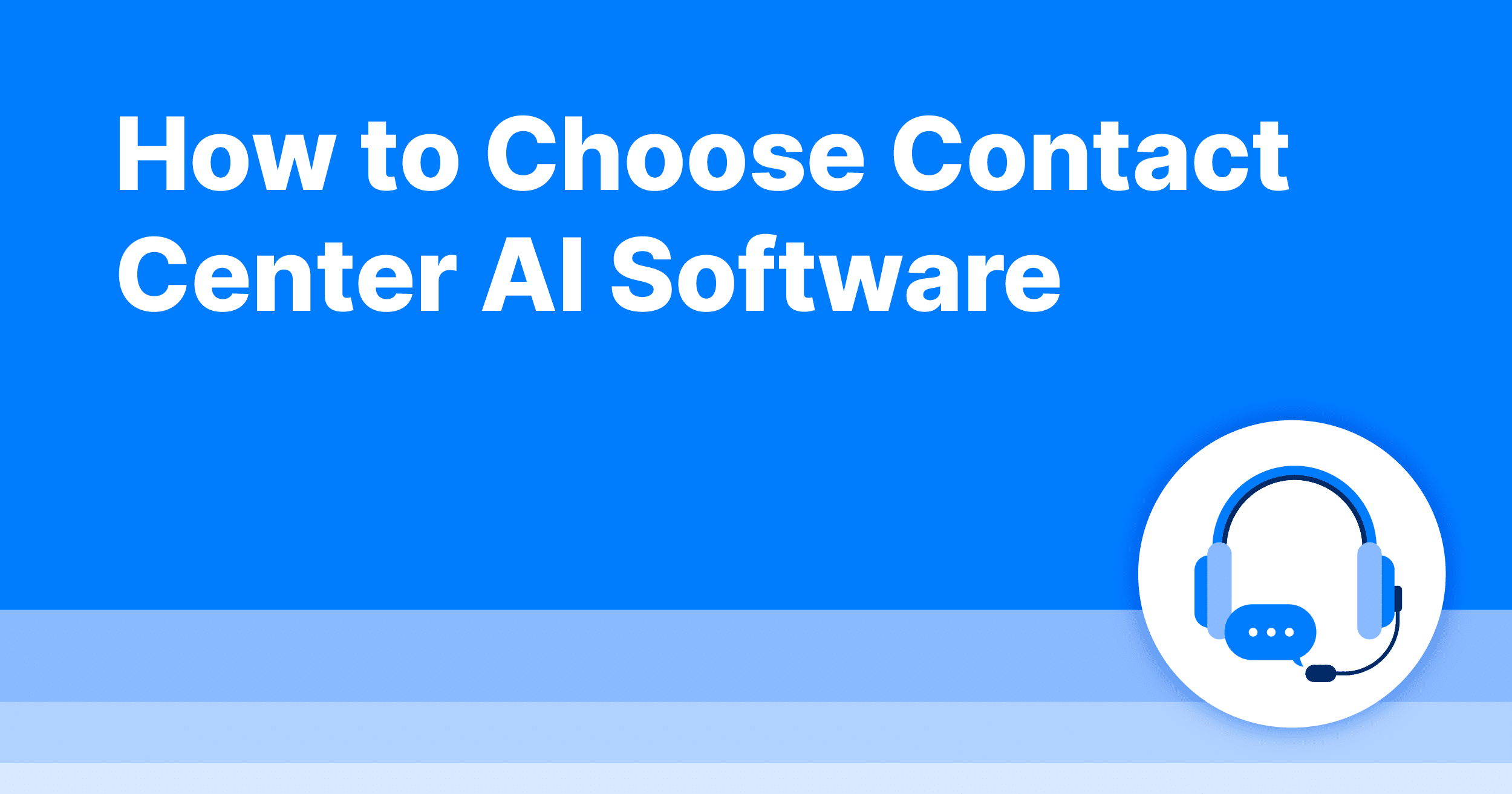Choosing the best contact center software is essential for delivering exceptional customer service and improving operational efficiency. The right software can help streamline workflows, provide valuable insights, and create a seamless customer experience. But with so many options available, how do you choose the best contact center software for your needs? This guide will help you evaluate the key criteria to make an informed decision.
Scalability
One of the most important factors to consider is scalability. As your customer base grows, your contact center software should be able to handle an increased volume of interactions without compromising performance. Scalable software adapts to your needs, whether you’re expanding to new markets or experiencing seasonal spikes in demand. Look for software that can easily scale up or down to match your business requirements.
Integration Capabilities
Integration capabilities are another critical aspect of the best contact center software. Your contact center software should seamlessly integrate with your existing systems, including CRM platforms, marketing automation tools, and communication channels. Integration ensures that your agents have a complete view of customer interactions, enabling them to provide personalized and efficient service. Check for compatibility with your current tech stack and the availability of APIs for custom integrations.
Omnichannel Support
Today’s customers interact with businesses through various channels like phone, email, social media, and live chat. Omnichannel support is a must-have feature in the best contact center software. It allows agents to manage all interactions from a unified interface, ensuring a consistent and smooth customer experience across all channels. This reduces the need for customers to repeat themselves and allows agents to resolve issues more quickly.
User Experience (UX)
A user-friendly interface is essential for maximizing agent productivity and minimizing the learning curve. The best contact center software should have an intuitive design with features like drag-and-drop functionality, customizable dashboards, and easy navigation. A well-designed user interface reduces training time and allows agents to focus on providing excellent customer service.
Reporting and Analytics
Effective contact center management relies on data-driven decisions. Comprehensive reporting and analytics tools are vital features of the best contact center software. These tools help you monitor key performance indicators (KPIs), such as average handle time, first call resolution, and customer satisfaction scores. By analyzing these metrics, you can identify trends, pinpoint areas for improvement, and make strategic decisions to enhance your contact center’s performance.
Security and Compliance
Data security and regulatory compliance are top priorities when choosing contact center software. Ensure that the software adheres to industry standards and regulations, such as GDPR and CCPA. Look for features like end-to-end encryption, multi-factor authentication, and regular security audits to protect sensitive customer information. Compliance with regulations not only safeguards your business but also builds customer trust.
Ease of Implementation
Ease of implementation can significantly affect the adoption rate and return on investment (ROI) of your contact center software. Choose software with a straightforward deployment process, including vendor support, training, and documentation. A smooth implementation minimizes downtime and accelerates the time-to-value, allowing you to start reaping the benefits sooner.
Cost-Effectiveness
Balancing functionality with cost is crucial when evaluating contact center software. Consider the total cost of ownership, including licensing fees, maintenance costs, and potential upgrade expenses. Look for software that offers scalable pricing models to align with your budget and operational size. The best contact center software provides excellent value without compromising on essential features.
Customer Support
Reliable customer support from the software provider is indispensable. Evaluate the support options available, such as 24/7 assistance, dedicated account managers, and comprehensive knowledge bases. Prompt and effective support can help resolve issues quickly, ensuring minimal disruption to your operations. Strong customer support is a hallmark of the best contact center software.
AI and Automation
Modern contact center software should leverage AI and automation to enhance efficiency and customer experience. AI-powered features like chatbots, virtual assistants, and automated workflows can handle routine tasks, allowing agents to focus on more complex queries. Additionally, AI-powered analytics provide deeper insights into customer behavior and agent performance, helping you make data-driven decisions.
AI-Powered Analytics
AI-powered analytics revolutionize the way contact centers understand customer interactions. By analyzing vast amounts of data, AI can identify patterns, predict common issues, and recommend solutions. Real-time sentiment analysis and customer feedback can provide actionable insights to improve service quality and agent performance.
Automated Routing
Automated routing optimizes call and query handling based on factors like skill level, priority, and availability. This ensures that customers are directed to the most suitable agent, reducing wait times and improving the overall efficiency of the contact center. The best contact center software incorporates advanced routing capabilities to enhance customer satisfaction.
Training and Onboarding
Efficient training and onboarding programs are essential for maximizing the potential of your contact center software. Look for vendors that offer comprehensive resources, including tutorials, webinars, and hands-on training sessions. Continuous learning opportunities help agents stay updated on new features and best practices, ensuring they can provide the best service possible.
Flexibility and Customization
No two businesses are alike, so flexibility and customization are crucial features in the best contact center software. The ability to tailor the software to meet your unique needs, whether through custom reporting, workflow adjustments, or specific integrations, can greatly enhance your operational efficiency. Choose software that allows you to adapt it to fit your specific requirements.
Vendor Reputation
Finally, consider the vendor’s reputation and track record. Research customer reviews, case studies, and testimonials to gauge overall satisfaction and reliability. A vendor with a history of continuous improvement, regular updates, and robust support is more likely to meet your business’s evolving needs. The best contact center software comes from vendors who are committed to excellence and customer success.
Conclusion
Selecting the best contact center software involves careful consideration of various factors. Prioritize scalability, integration capabilities, omnichannel support, user experience, reporting and analytics, security and compliance, ease of implementation, cost-effectiveness, customer support, AI and automation, training and onboarding, flexibility and customization, and vendor reputation. By evaluating these criteria, you can identify the best contact center software that will empower your business to deliver exceptional customer service and drive operational success.
Remember, the best contact center software not only meets your current requirements but also adapts to your future growth and changing customer expectations. Take your time to assess these criteria and make an informed decision that will set your contact center up for success.





